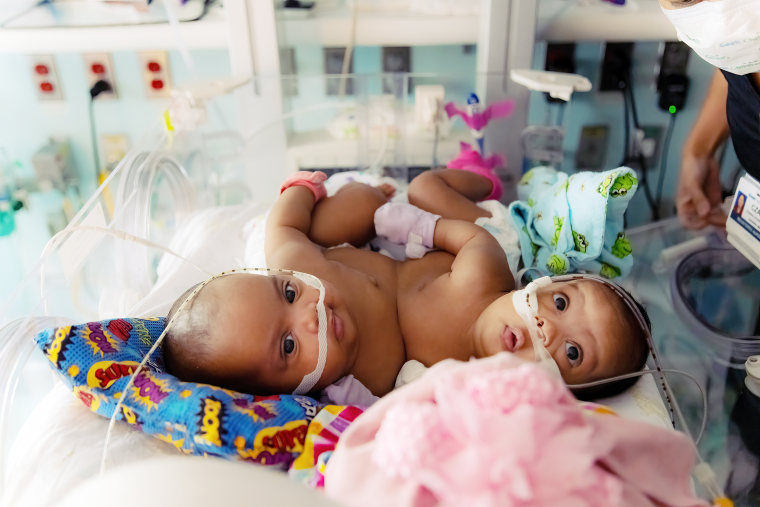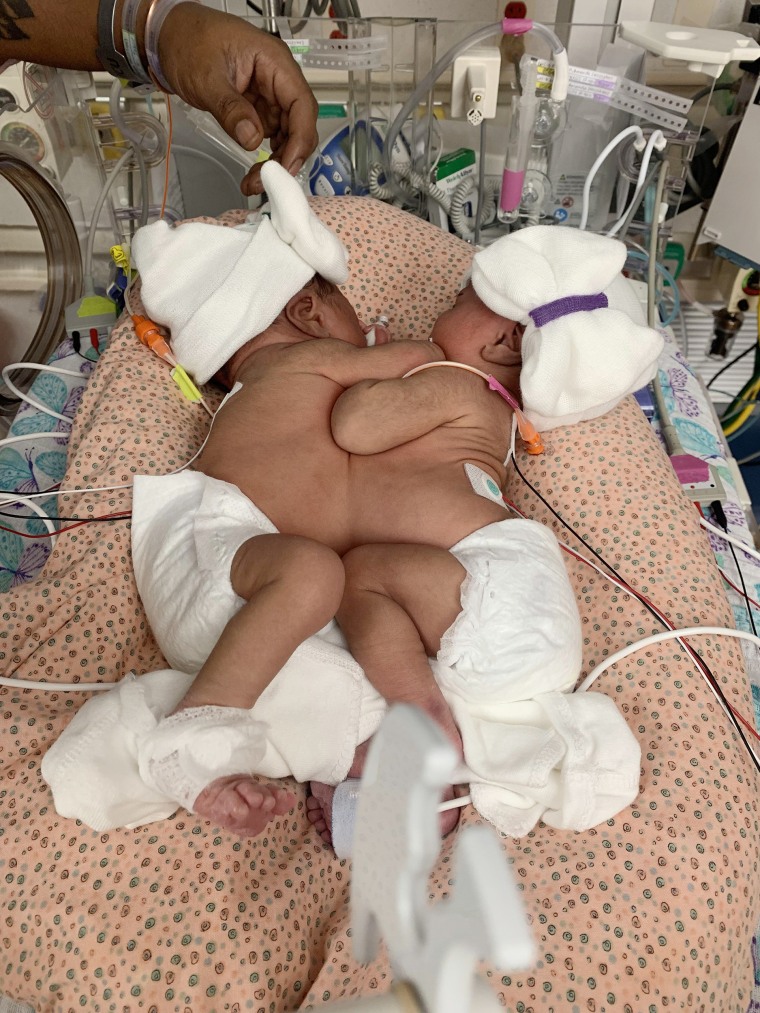Doctors at Cook Children’s Medical Center in Fort Worth, Texas, performed a successful surgery to separate conjoined twins on Jan. 23 in a procedure that took 11 hours and involved 25 medical professionals.
James Finley and Amanda Arciniega of Saginaw, Texas, are the parents of twin girls AmieLynn and JamieLynn, who were born last October, reports NBC Fort Worth affiliate KXAS.
In a segment that aired Jan. 26 on TODAY, the couple recalled the shock of finding out they were having conjoined twins, which happened during a 10-week ultrasound.

“On the ride home, we were quiet, and it was kind of sad,” Arciniega recalled as she teared up.
Only about one in every 200,000 live births result in conjoined twins. AmieLynn and JamieLynn were joined from the lower part of the breastbone to the belly button and had the same liver, creating a challenge for doctors trying to separate them.
“There is no medical book you’re going to open and it says, ‘Step one: conjoined twins separation.’ That does not exist because of the rarity of this,” said Dr. Ben Gbulie, a plastic surgeon at Cook Children’s Hospital.
Six surgeons were on the team of 25 medical professionals tasked with helping the girls. Dr. José Iglesias led the effort and said it showed just how much the human spirit and collaboration can accomplish.

“This is a testament to the human spirit to continue to research to be able to have the technology to do incredible and complex things,” he said.
As for the road ahead, Iglesias remains optimistic.
“I’m very hopeful that they’re going to have a good recovery and lead healthy lives in the future,” he told Cook Children’s Hospital. “They’re going to have a bit of a ramp up from the recovery, but I think they’re going to be able to get there eventually, and very close to normal if not completely normal.”